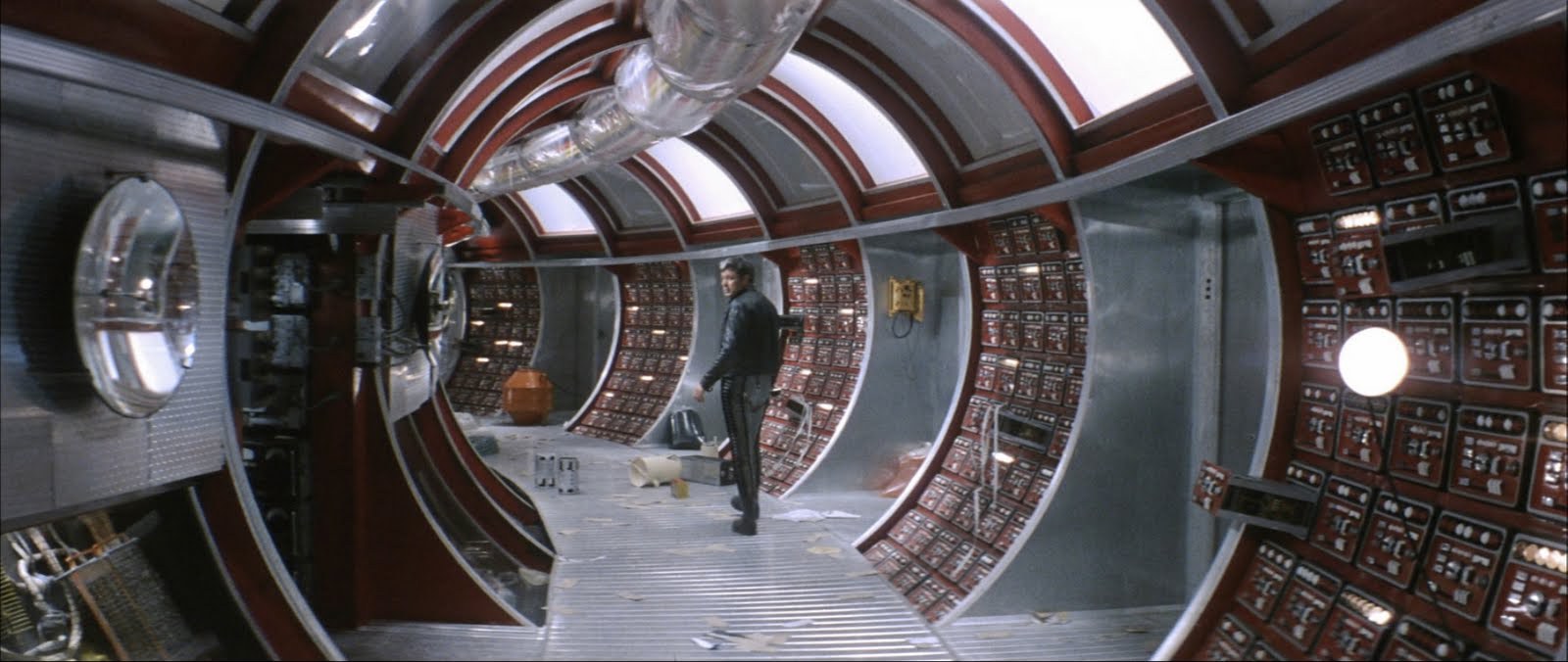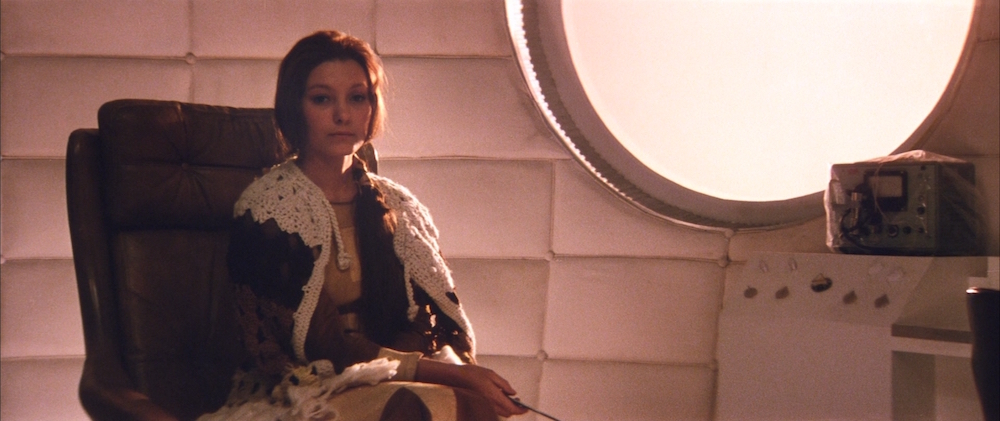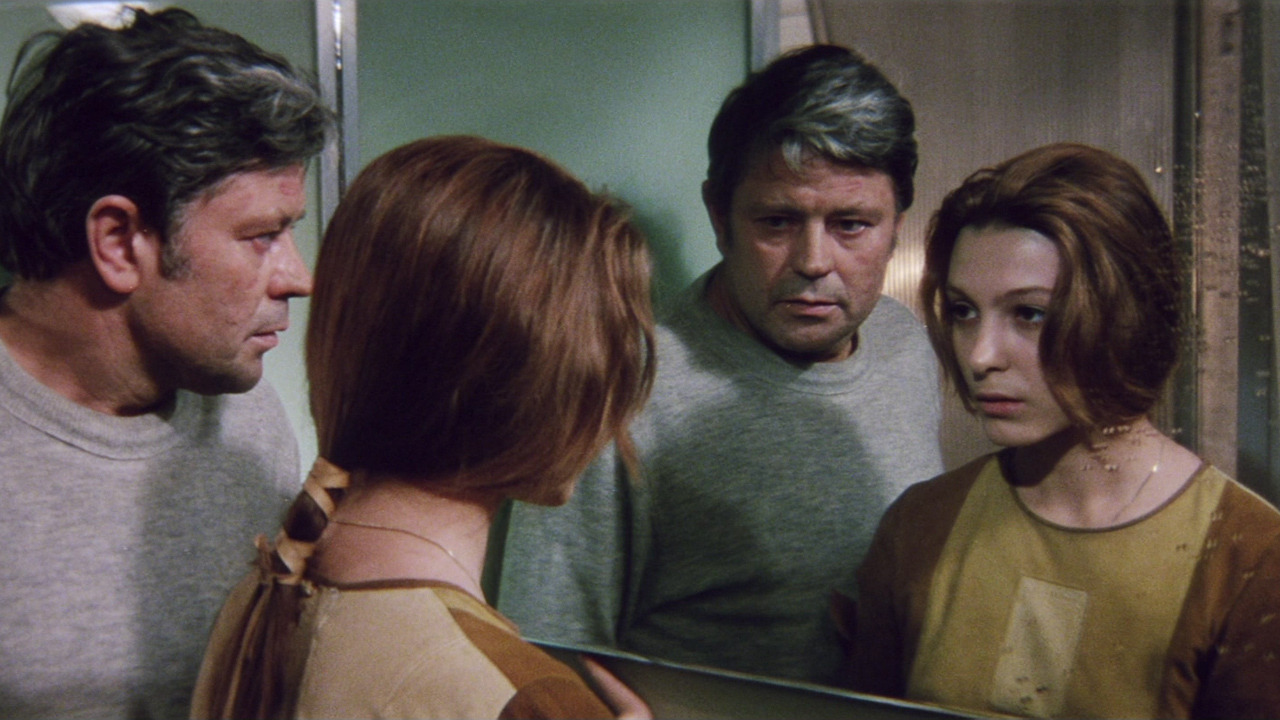
1/ At the beginning of the film, there are some long nature shots. The scenery is to “reappear” at the end, in a different setting. They are long, but you must take it all in, you must really feel it, in order to see the difference between Earth and Solaris, and to understand the feeling of emptiness and nostalgia of the astronauts. Kris Kelvin appears detached and cold, and doesn’t seem to particularly care for nature, but even he attaches strips of paper to air vents to create the sound of rustling leaves.
2/ Speaking of which, dead silence is intolerable when ears are used to noise. There must always be some sound, in the background, hardly noticeable because taken for granted—absolute silence would be noticeable, and awful. There is no life on Solaris, only a roaring, formless sea.
3/ The detail about the sound of rustling leaves also makes me think about things in life I take for granted.


4/ Most interesting in Solaris is the character of Hari—a person that isn’t a real human being, an alien that doesn’t look alien, a being that is no more than a materialisation of Kelvin’s conception of her.
5/ She is Hari but she isn’t Hari. She is a materialisation of the Hari in Kelvin’s head—she has no secrets because he didn’t know her secrets, she is suicidal because the real Hari committed suicide and that’s how Kelvin always thought about her.
6/ Gibarian (the astronaut who commits suicide) mentions the word conscience. That seems to apply for Hari—kill her, she appears again; she destroys herself, then revives minutes later; she’s like an old guilt, never forgotten.
7/ Roger Ebert wrote, in his review of the other Solaris (2002):
“In other words, Kelvin gets back not his dead wife, but a being who incorporates all he knows about his dead wife, and nothing else, and starts over from there. […] The deep irony here is that all of our relationships in the real world are exactly like that, even without the benefit of Solaris. We do not know the actual other person. What we know is the sum of everything we think we know about them. Even empathy is perhaps of no use; we think it helps us understand how other people feel, but maybe it only tells us how we would feel, if we were them.”Of course it’s not exactly the same. Because Hari is a materialisation of Kelvin’s conception of her, she’s incapable of shocking him, or even changing. Her self-destructiveness is part of the conception.
But it’s an interesting thought. People can never know each other fully, completely. (Sometimes) we love not the actual person, but our conception of them.

8/ At the same time, Hari is so interesting because she’s becoming real—she becomes so real that she knows she isn’t real. She has self-consciousness.
9/ Solaris is sci-fi so that the genre provides with the planet, but it’s really about psychology and philosophy.
10/ In the end, the scenery we have seen earlier appears again, but it’s not the same place—it’s on Solaris. The entire place is formed by Kelvin’s consciousness alone. What do I think about that? I don’t know. I don’t think I got much out of Solaris after 1 viewing.
Di,
ReplyDeleteExcellent commentary. I also found Hari to be the most interesting character in the film, a materialization who is becoming self-aware. I always wondered how far that process would go.
I found Kris' relationship to nature to be ambiguous. Is he really cold and detached or composed and calm.
And, I agree, the film and the novel both require more than one viewing and reading. I have seen the Russian version at least twice and have read Lem's novel twice also.
Thank you.
DeleteHe might be composed and calm. I'm not sure about his relationship to nature, but I mean, as a person, he seems cold, rational to the point of being rude, and doesn't seem to have much attachment to others. At least that's the impression I got. He's distant to his wife too, until after she dies.
Have you watched the Hollywood version?
wow! you just told me more than i knew about the book even after two readings and a view of the movie! Lem is a great favorite, especially his Ijon Tichy series, but i don't claim any special understanding of his work; he just seems an unrecognized genius to me...
ReplyDeleteHaha thank you. I haven't read the book. I've heard that Tarkovsky's film is quite different. Lem wasn't happy with it.
DeleteI don't think he was happy with the other version either.